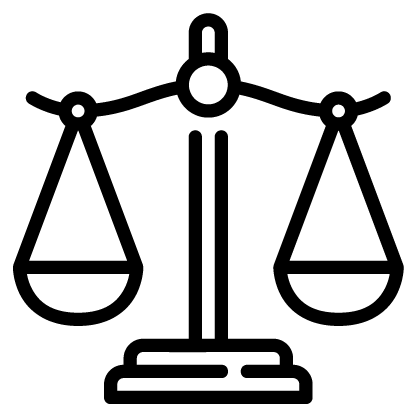Harassment, discrimination and bullying
You have the right to study and work in an environment that is free from harassment, discrimination and bullying. In Australia, there are both federal and state laws that apply to these areas, but in slightly different ways, so if you feel like you’re being harassed, discriminated against or bullied at the University, it’s best to seek advice from our legal or casework services.
Harassment and discrimination
In Australia it is unlawful to offend, humiliate or intimidate someone or treat them less favourably than others because of protected attributes such as race or gender.
Even in such a diverse and progressive community as the University of Sydney, everyday subtle forms of racism and sexism take place and can reinforce destructive stereotypes, institutional inequality and even violence. Experiencing racial and gendered harassment and discrimination is extremely hurtful, and at times can be difficult to name and talk about.
What is harassment?
Harassment is behaviour towards another person (or a group of people) that could reasonably be expected to make them feel offended, intimidated, or humiliated. It can be an ongoing pattern of behaviour or it may be just a single act. It can be sexual harassment or it can be targeted behaviour based on a person’s:
- race
- sex
- sexual orientation
- gender identity
- intersex status
- pregnancy
- marital or relationship status
- disability
- age
- carer responsibilities
- social origin
- political belief or lack of political belief
- religious belief or lack of religious belief.
Sexual harassment
Sexual harassment is unwelcome sexual behaviour or unwelcome conduct of a sexual nature. It can be physical, verbal, or written, and can occur once or in a series of incidents.
‘Conduct of a sexual nature’ includes:
- subjecting a person to any act of physical intimacy
- making statements of a sexual nature to a person or about a person in their presence
- making any gesture, action or comment of a sexual nature in a person’s presence.
The intent of the person who engages in the sexual harassment does not matter.
If you’ve experienced sexual assault, find out more about your options for making a complaint and seeking support.
What is unlawful discrimination?
Unlawful discrimination can be direct or indirect.
Unlawful direct discrimination occurs when a person is treated less favourably than others in a similar situation because they possess a certain attribute. The attribute may be a person’s:
- race (including the colour of their skin, nationality, descent, and ethnic, ethno-religious or national origin)
- gender (including pregnancy and breastfeeding)
- sexual orientation
- gender identity,
- intersex status
- marital or relationship status
- disability
- age
- carer responsibilities
- social origin
- political belief or lack of political belief
- religious belief or lack of religious belief.
Unlawful indirect discrimination occurs when there is an unreasonable rule or policy that is the same for everyone but has an unfair effect on people who share one of the particular attributes protected by law. For example, including a height requirement, as this could indirectly discriminate against women whose average height is lower than men’s.
What is bullying?
Bullying is repeated, unreasonable behaviour that is directed towards a person or a group of people, that may create a risk to their health and safety.
Bullying includes:
- repeated physical or verbal abuse
- yelling, screaming or offensive language
- exclusion from a community
- spreading of personal or false information
- psychological harassment
- unjustified criticisms
- interfering with personal property or equipment.
It can also include undermining work performance by deliberately withholding information vital for effective work performance.
Although the law emphasises a requirement for the behaviour to be ‘repeated’ to meet the definition, a single instance of bullying that is sufficiently severe can also be considered bullying.
Cyberbullying
Cyberbullying involves harmful, discriminatory and intimidating behaviour through digital platforms. Cyberbullying could include:
- sending unwanted messages repeatedly
- sending abusive texts and emails (including spreading false or personal information about someone)
- posting hurtful images and videos online
- creating fake profiles
- any other form of digital communication that is intended to cause hurt or make someone fear for their safety.
Australia has laws that apply to serious online harassment and bullying.
What are the University’s responsibilities?
The University has a legal obligation to provide an environment free of harassment, discrimination and bullying, and a responsibility to provide effective procedures for reporting and resolving complaints.
What can you do?
If you think you or someone you know is being bullied, harassed or discriminated against at the University, whether by a student or a staff member, you can lodge a complaint with the Student Affairs Unit.
Our casework and legal services can help advise and assist you, so please contact us for help. Our services are free, professional and confidential.
Complaint options outside the University
You can also make a complaint about unlawful harassment or discrimination to either Anti-Discrimination NSW or the Australian Human Rights Commission. As your complaint can’t be heard by both bodies, you should get advice from our Legal Service on the best option for you based on the nature of your complaint. You normally have to lodge your complaint within 12 months of the incident.
Policies
These relevant University policies are available at the University Policy Register:
- Bullying, Harassment and Discrimination Prevention Policy 2015
- Bullying, Harassment and Discrimination Resolution Procedures 2015
- Resolution of Complaints Policy 2015
- Staff and Affiliates Code of Conduct 2021
- Student Charter 2020
- Student Complaints Procedures 2015
- Student Sexual Misconduct Policy 2018
- Student Sexual Misconduct Response Procedures 2018.
Further assistance
If you need further advice or assistance with a harassment, discrimination or bullying matter, or you are the subject of a complaint contact us for help from our legal or advocacy services.
If you’d like to speak with a counsellor about an incident of harassment, discrimination, or bullying contact University Student wellbeing for free and confidential assistance. They also have a mental wellbeing support line that is available 24/7.
Find more on-campus student support services.
Disclaimer
This information is current as at December 2023 and is intended as a guide to the law as it applies to people who live in or are affected by the law as it applies in NSW. It does not constitute legal advice.
Download this article as a Word document
Download this article as a PDF
Written by SUPRA Legal Service December 2023.
Need help?
Our casework and legal services are here for you.

Postgraduate Advocacy Service
Our caseworkers can help with any problems you face while you study at Usyd, from academic appeals to renting.


Stay in touch with us